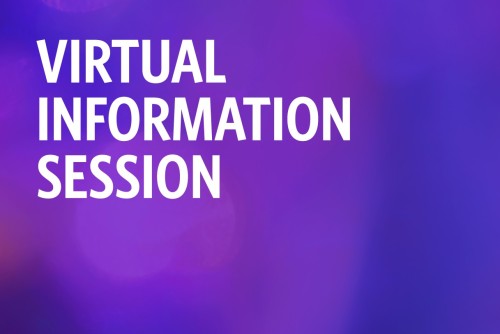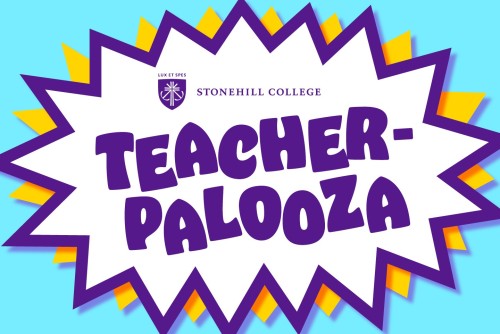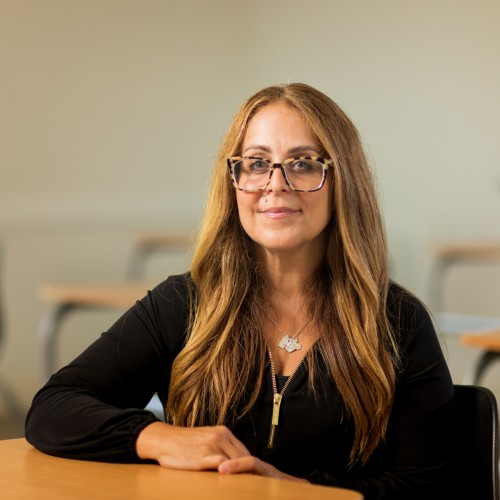Postbaccalaureate Licensure in Math/Science, 5-8
Stonehill's Postbaccalaureate Licensure in Math/Science, 5-8 prepares current educators who already hold a master's degree to create and lead inclusive learning environments. It leads to Massachusetts initial licensure in math/science, 5-8.
Upcoming Application Deadlines
- Summer Semester: May 1, 2025
- Fall Semester: August 1, 2025
- Spring Semester: January 1, 2026
Earn Your Initial Licensure in Math/Science, 5-8
The Postbaccalaureate Licensure in Math/Science, 5-8 program prepares teachers to be leaders and critical thinkers. Schools today are complex and diverse communities — reflecting a landscape rich with individual differences. Teachers in our program are prepared using a unique combination of theoretical and practical experiences. This approach ensures their ability to create and lead equitable spaces where difference is valued while at the same time preparing them for the realities and challenges of the classroom and the profession.
In this program, students will:
- develop specific math and science pedagogical skills to teach adolescent learners
- develop mathematical and scientific thinking to design curricula to reach all learners
- explore universal design, intersectionality and inclusivity
- learn to foster care, connection and community with adolescent learners, their families and colleagues
This program includes a mix of in-person and online courses.
Why Graduate Teacher Education at Stonehill
- Focus on educational equity and diversity helps better prepare educators for the modern classroom
- A core of foundational courses ensures our graduates gain the skills to teach all students
- Faculty with well-established expertise in field
- Experiential learning via research, partnership and community opportunities
- Specialized student support framework guides students through program requirements and career preparation
Curriculum Keeps Inclusivity at the Center
Stonehill's graduate teacher education programs include unique and effective courses, programs and opportunities that foster innovation, transformation and leadership. Our curriculum keeps inclusivity central to how we prepare educators for schools, classrooms and community settings.
The 21-to-27 credit Postbaccalaureate Licensure in Math/Science, 5-8 program features a selection of courses designed to prepare educators for initial Massachusetts licensure in math/science, 5-8.
This course covers current policy and practice related to English Learners (ELs) in schools with a special focus on Sheltered English Immersion (SEI) Settings. Topics will include diversity issues, content/academic vocabulary development and literacy skills (including listening, speaking, reading and writing) to provide teachers with the knowledge and strategies to support ELs in classrooms.
*May be waived with documented, state-approved sheltered English immersion (SEI) endorsement.
This course examines and unpacks contemporary issues in the field of education and provides prospective teachers with a beginning foundation for understanding the teaching profession and the U.S. education system, including policy and governance. The historical, legal, ethical, and pedagogical foundations for social justice education and democratic education will be explored, as well as the education reform context and emerging policies. The course will include an examination of professional ethics and standards.
Required field experience.
This course explores supportive, preventative, and proactive approaches to addressing the social and academic behaviors of students with disabilities and other diverse populations. Strategies for developing a positive classroom climate to support social and emotional development, including trauma and anxiety, will be central to the learning of the course. A variety of approaches, including the connection between communication & behavior, identifying contributing factors to challenging behavior, FBA, and behavior support plans will be explored.
This course explores how curriculum built on the goal of student understanding, integrated with instructional approaches that emphasize reaching every learner, can provide teachers with more specific teaching targets and more flexible ways to reach them. Students will examine the teaching, instruction, and curricula required to meet the needs of diverse learners, who by virtue of their experiential, cultural, and socioeconomic backgrounds, challenge traditional curriculum and instructional programs.
Course participants will determine how to deconstruct curricular barriers and create and apply curricular solutions, including assistive technology and AAC, to maximize access and academic success.
This three-credit course provides an opportunity to unpack the perspective of various academic content areas through action/inquiry research. This course will assist teacher candidates in developing professional voice through the inquiry process. Inquiry and action research provides educators, administrators, and community leaders a method to study classroom challenges using an emic, or “insiders” perspective in order to investigate and improve their practice. This course will provide teacher candidates with the knowledge and skills needed to use action/inquiry research as a basis to make curricular and instructional decisions both school-wide and at the classroom level, and develop an action research project to address a school or classroom issue.
This course examines the role of school in adolescents’ identity development, middle school/middle level education and philosophy, including the historical context to current best practice. Emphasis is on the adolescent brain, the developmental, emotional, and intellectual traits of the diverse adolescent learner, and resulting implications for teaching and learning. Adolescent learners are examined in and out of school contexts, with an emphasis on diversity, culture, and inclusivity and historically minoritized groups.
This three-credit course provides an in depth look at the teaching and learning of science in the middle school (grades 5-8). Students will acquire an understanding of the content (Earth & Space Science, Life Science, Physical Science, Technology & Engineering) and practices of middle school science along with highly effective instructional practices for teaching science to early adolescents. This course is centered around inquiry learning, and authentic assessment for science in the middle school.
This three-credit course provides an in depth look at the teaching and learning of mathematics in the middle school (grades 5-8). Students will acquire an understanding of the content (ratio and proportionality; expressions and equations; statistics and probability; the number system; geometry; and functions) and practices of middle school mathematics along with highly effective instructional practices for teaching mathematics to early adolescents. This course is centered around high leverage routines, problem-based learning, and authentic assessment for mathematics in the middle school.
During this hybrid clinical and class-based graduate experience, which commences the practicum, students focus on the design and implementation of standards-based (both state and social justice standards) lessons that are designed using the principles of Universal Design for Learning. Graduate students receive coaching and targeted and actionable feedback on lesson design and implementation from both instructor and class colleagues.
This course is taken concurrently with a graduate practicum or internship. This capstone seminar will focus on social justice education, professional culture, family & community engagement, collaboration, and curriculum and planning for educational contexts. Students will reflect on experiences in the practica/internship site and current issues and best practice in education, including trauma and social emotional learning.
Field experience requirement.
Upcoming Graduate & Professional Studies Events
-
Virtual Information Sessions
Join us for a virtual information session or drop-in session to learn more about our master’s degree and certificate programs.
-
Teacherpalooza: A Teacher Appreciation Event
Join us Thursday, June 5, for Teacherpalooza, a teacher appreciation event hosted by Stonehill Graduate Teacher Education to thank educators for their hard work.
Studying Education at Stonehill
Stonehill College's graduate teacher education programs prepare educators to lead inclusive learning environments. The College offers master's degree, teacher licensure, community education and graduate certificate program options.
Schools today must strive to be inclusive environments, and educators in our program are prepared to be leaders in creating equitable spaces where difference is valued.
Graduate Teacher Education at Stonehill
Stonehill College's graduate teacher education programs aim to prepare knowledgeable, reflective, caring and flexible educators who embrace learning, scholarship, community and advocacy in their work. Social justice and democratic education are at the center of our work and underpins all programs, courses and experiences. We believe education can disrupt systems and processes that perpetuate injustice and inequity and embrace diversity and individuality as strengths.
We advance our mission by modeling the creation of democratic spaces in the graduate classroom that reflect equitable, accessible and inclusive learning environments where students' voices and perspectives help to shape the construction and the provision of their learning.
Three tenets guide our program philosophy:
- Social justice education
- Democratic education
- Anti-oppressive education
Graduate Teacher Education Program Outcomes
Our graduates
- Foster care, connection and community with students, colleagues and families
- Promote inclusivity, diversity and equity in educational spaces
- Work to disrupt systems that perpetuate oppression and inequity
- Embrace teaching practices that foster social justice and democracy
- Lead by making education accessible for all learners
- Elevate student voices and perspectives in education
- Act purposefully to continue to learn and contribute to the profession
Rigorous Academics and the Support to Succeed
Stonehill’s graduate teacher education programs recognize the challenges graduate students face in prioritizing work, family, personal and graduate school commitments. Our Graduate Student Support, Access and Success (SSAS) Framework is designed to support students’ success from program start to finish.
Specifically, this approach provides:
- A proactive vs. reactive framework for supporting graduate students’ variable needs within their program
- Clear benchmarks for assessment of candidate readiness
From the admission process to graduation, students have a clear understanding of both expectations and the support available to help them achieve their goals.
Contact Information
Graduate & Professional Studies Admission assists students as they explore graduate and professional opportunities offered at Stonehill College.
Meet the Director of Graduate Teacher Education



